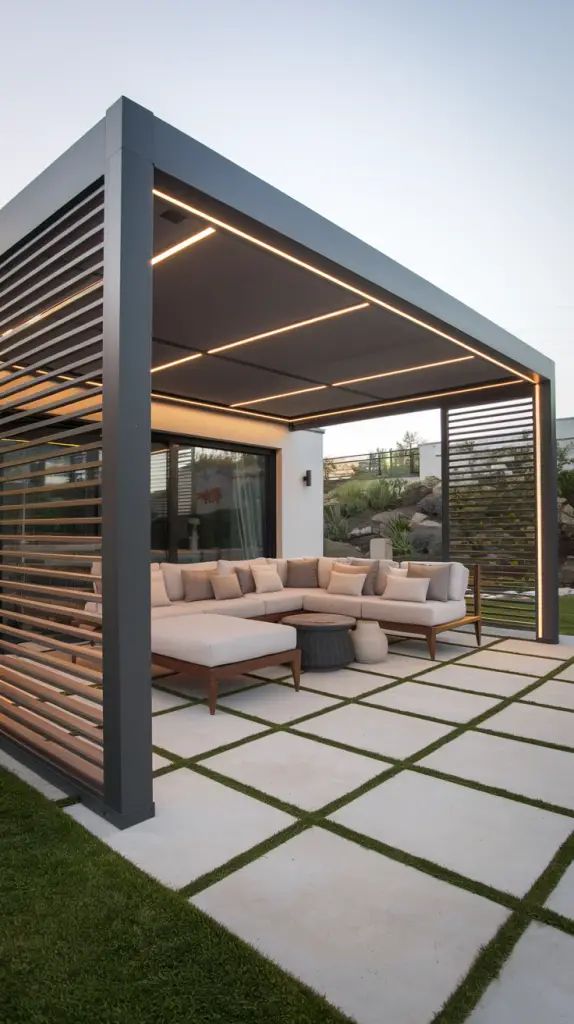New Zealand’s stunning coastline offers breathtaking views and a unique lifestyle, but it also presents specific challenges for outdoor structures. The harsh coastal environment—characterised by salt spray, strong winds, high humidity, and intense UV radiation—demands materials and designs that can withstand these corrosive and erosive forces. When choosing a pergola for a coastal property in NZ, durability and resistance to the elements are paramount to ensure longevity and minimise maintenance pergola nz.
Investing in a pergola specifically designed for coastal conditions means you can enjoy your outdoor space without constantly worrying about corrosion, fading, or structural degradation. Here’s a guide to pergolas that are built to thrive by the sea.
Marine-Grade Aluminium Pergolas: The Coastal Champion
For ultimate durability in coastal environments, marine-grade aluminium pergolas are often the top choice. Standard aluminium is already resistant to rust, but marine-grade variants offer enhanced protection against the corrosive effects of salt spray. When combined with a high-quality, architectural powder-coat finish, these pergolas become virtually impervious to the elements.
- Benefits:
- Superior Corrosion Resistance: Specifically engineered to resist salt air and moisture.
- Exceptional Durability: Withstands strong winds and intense UV without warping, cracking, or fading.
- Low Maintenance: Requires only occasional rinsing with fresh water to remove salt build-up. No painting, staining, or sealing.
- Sleek Aesthetic: Offers a modern, clean look that complements contemporary coastal architecture.
- Considerations: Higher initial investment compared to standard materials, but offers unparalleled longevity and peace of mind in harsh coastal settings.
Stainless Steel Pergolas: Robust and Resilient
Another excellent option for coastal areas is stainless steel, particularly grades like 316 (marine grade). Stainless steel offers incredible strength and resistance to corrosion, making it suitable for high-exposure sites. Its industrial-chic aesthetic can also be a desirable design feature.
- Benefits:
- Extreme Durability: Highly resistant to rust, corrosion, and structural fatigue from wind.
- Strength: Ideal for supporting heavy roofing materials or for creating large, open spans.
- Modern Look: Provides a sophisticated, contemporary feel.
- Considerations: Can be significantly more expensive than aluminium. Requires regular cleaning to prevent “tea staining” (surface discolouration) from salt, especially in very exposed locations.
Treated Timber Pergolas (with Specific Care): The Natural Choice
While timber requires more maintenance in coastal areas than metals, it remains a popular choice for its natural warmth and ability to blend with the environment. If opting for timber, specific choices and treatments are crucial.
- H5 Treated Pine: For ground contact or very wet areas, H5 treated pine offers superior resistance to rot and decay. For above-ground components (H3.2 or H4), ensure the treatment is robust.
- Naturally Durable Hardwoods (Kwila, Vitex): These timbers possess natural oils and density that provide better resistance to moisture and insects. However, they will still benefit from regular oiling or sealing to protect against UV and salt fading.
- Regular Maintenance: Timber pergolas in coastal areas will require more frequent cleaning, re-oiling, or re-staining to combat salt build-up, UV degradation, and moisture ingress.
- Design for Drainage: Crucial for timber to prevent water pooling and accelerate drying after rain or salt spray.
Louvred Roof Systems: Enhanced Coastal Protection
Many louvred pergolas are made from marine-grade aluminium, making them inherently suitable for coastal conditions. Their ability to close fully offers an additional layer of protection for the outdoor living space and furniture beneath, shielding them from salt spray and strong winds when not in use.
- Benefits: Combines the durability of marine-grade aluminium with dynamic weather control.
- Furniture Protection: When closed, helps protect outdoor furniture from salt and wind.
- Ventilation Control: Allows for airflow on hot, still days, while closing to block harsh gusts.
Design Considerations for Coastal Pergolas
Beyond materials, certain design elements are vital for coastal pergolas:
- Robust Foundations: Strong footings are essential to withstand high winds and potential ground movement.
- Secure Fixings: All fasteners and connectors should be marine-grade stainless steel to prevent corrosion.
- Wind Loading: The design must account for significant wind loads, often requiring heavier posts and stronger bracing.
- Drainage: Effective drainage systems are crucial to prevent salt and moisture build-up.
By carefully selecting materials and incorporating design principles tailored for the coastal environment, homeowners can ensure their pergola remains a beautiful, functional, and resilient feature of their New Zealand seaside property for many years to come.



